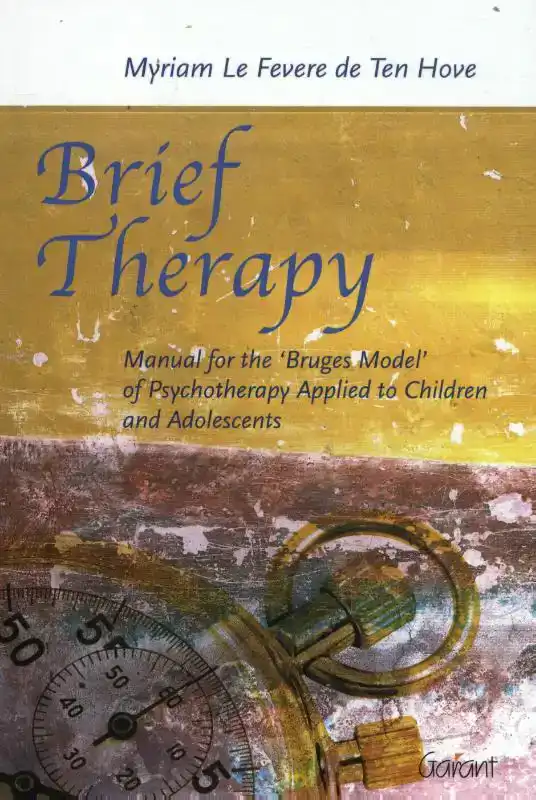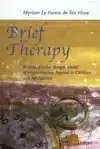- Engels
- Study
- social science
- psycho therapoëzie
- BRIEF THERAPY
LE FEVERE DE TEN HOVE, MYRIAM
BRIEF THERAPY
16,90incl BTW
Vertrouwd sinds 1927
Persoonlijke aandacht en advies
Vanaf 17,50 gratis verzenden NL & BE
Meer dan 150.000 artikelen online
Omschrijving BRIEF THERAPY
The idea ''Brief Therapy'' was introduced by the Palo Alto-school: John Weakland and Don Jackson and later on Paul watzlawick, Dick Fisch and Carlos Sluski. In this book, the Bruges Model of Brief Therapy is described. It was developed by the Korzybs
ki-institute in Bruges (Belgium) with Luc Isebaert, Marie-Christine Cabie, Louis Cauffman and Myriam Le Fevere de Ten Hove. The participants of the ''Therapeutic Conversations 3''-congres in Denver (Colorado- USA) in 1996 gave it the name ''Bruges Mo
del''. ''Brief'' is not the purpose in itself, but the natural consequence of a respectful approach of the client, by which he again discovers the possibility of making a choice in his thinking and doing, in having his life under control, and so esca
ping the straitjacket of symptoms. Having the conviction that the client has the most know how in this matter, but often not realizes he has, as therapists we don''t give ourselves the task of accompanying the client until the problem is completely s
olved. We stop when the client has found sufficiently his way to continue. This cooperative approach between the client and the therapist avoids creating resistance. The guideline of this model of Brief Therapy is applied to children and youngsters.
Children are in a continuous evolution: this implicates varying opportunities and limitations. Youngsters are not very keen on therapy, especially not when their parents are asking for it. This book shows how to cope with these situations.
ki-institute in Bruges (Belgium) with Luc Isebaert, Marie-Christine Cabie, Louis Cauffman and Myriam Le Fevere de Ten Hove. The participants of the ''Therapeutic Conversations 3''-congres in Denver (Colorado- USA) in 1996 gave it the name ''Bruges Mo
del''. ''Brief'' is not the purpose in itself, but the natural consequence of a respectful approach of the client, by which he again discovers the possibility of making a choice in his thinking and doing, in having his life under control, and so esca
ping the straitjacket of symptoms. Having the conviction that the client has the most know how in this matter, but often not realizes he has, as therapists we don''t give ourselves the task of accompanying the client until the problem is completely s
olved. We stop when the client has found sufficiently his way to continue. This cooperative approach between the client and the therapist avoids creating resistance. The guideline of this model of Brief Therapy is applied to children and youngsters.
Children are in a continuous evolution: this implicates varying opportunities and limitations. Youngsters are not very keen on therapy, especially not when their parents are asking for it. This book shows how to cope with these situations.
Specificaties
- MerkGARANT
- GroepPSYCHOLOGIE ALGEMEEN(770)
- Barcode9789044137224
- LeverstatusActief
Reviews
0.0/5.0
Gemiddelde uit 0 reviews
Meest behulpzame reviews
Nog geen reviews geschreven


